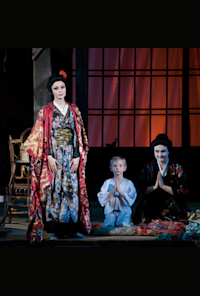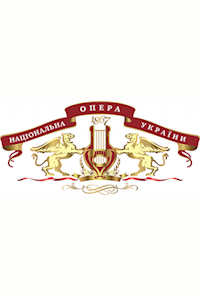February 1890 is one of the most difficult periods in the life of the famous Italian composer Giacomo Puccini. The production of the opera "Cio-Cio-san" on the stage of the La Scala theater in Milan was booed by the audience.
The composer's triumphant successes over the years, starting with "Willis" and ending with "Tosca", were instantly forgotten. The audience attacked the opera with exceptional cruelty, it seems that even Puccini's supporters wanted to erase from their memory the very mention of the fervor of the recent applause. The gallery, the boxes, the parterre did not give rest to the little Japanese girl in the wonderful performance of Rosina Storkio, nor to her creator, who watched the development of the play with horror and confusion from behind the scenes. On the eve of the premiere, Puccini was quite sure of the unconditional success of his new opera. That is why the unexpected failure hit the composer so hard.
The reason for such a fiasco could be explained by the excessive duration of the second act of the opera. The expediency of dividing it into two parts was repeatedly pointed out to the composer by the librettists Luigi Illica and Giuseppe Giacosa, and the well-known conductor Arturo Toscanini drew attention to this miscalculation, who got acquainted with the score of "Madame Butterfly" on the eve of the premiere. However, Puccini personally saw that this failure was planned in advance by some music critics, the press, and the audience involved in theatrical intrigues.
A Japanese girl from Nagasaki appeared before Puccini unexpectedly. In search of the inspiration that once inspired him to create "Manon Lescaut" (1892), "Bohème" (1896) and "Tosca" (1900), the composer finally decided to leave his native Torre del Lago: perhaps a new idea would arise in a new place.
In the summer of 1900, the London premiere of "Tosca" was to take place in Covent Garden. The composer visited England and, as an ardent supporter of theatrical art, could not fail to attend the sensational performance of the season, held at the Duke of York Theater, and to see the dramatic development of the play by the American playwright and theater actor David Belasco (1853 - 1931). "Geisha", the plot of which was borrowed from the short story "Madame Butterfly" (1898) by another American - John Luther Long (1861 - 1927). Moved by the tragic story of the fate of the young Japanese girl Chio-Chio-san and impressed by the theatrical brightness of the performance, Giacomo Puccini immediately turned to the author of the drama, David Belasco, with a request to allow him to use this plot to write the libretto of the opera. In April 1901, consent was received from the author of the novel.
In a creative partnership with the librettists Giacosa and Illika Puccini began to work. For almost three years, the composer worked on the score of the new work. He carefully studied various materials from the life, everyday life, art and beliefs of the Japanese people, got acquainted with the best examples of folk music (about 10 folklore themes were included in the opera). He faced serious difficulties related to insufficient knowledge of the far eastern country, where Puccini had never been.
The composer discovered the mysterious world of Japanese culture, which impressed him with its original freshness, extraordinary poetics and depth of worldview. By choosing an "exotic plot", Puccini paid tribute to the general fascination of the contemporary society with fashionable oriental trends that penetrated the cultural and artistic life of Europe. Japan, according to the words of one of the famous poets, triumphed in impressionist painting. Sophisticated oriental motifs prevailed in literature as well, in particular, in the genre of the "colonial" novel, a vivid representative of which was the naval officer, traveler, writer by heart Pierre Loti (1850-192). It was his work, full of oriental exoticism, "Madame Сhrisantheme" (1887) that was the first incarnation of the story of Chio-Chio-san in literature.
Two Japanese women provided great help to the composer in the birth of the famous lyrical work. One of them, Mrs. Okiyama, the wife of the Japanese consul in Rome, sang the motifs of ancient Japanese songs to the famous maestro. Puccini turned to another famous dramatic actress, Sada Yakko, in order to experience the peculiarities of the intonation and rhythm of the Japanese language.
It was the authentic psychological atmosphere recreated by the composer in the stirring "Japanese tragedy" that raised "Madame Butterfly" to the level of exceptional examples of the world opera scene, and the image of Chio-Chio-san became the best in the gallery of Puccini's heroines. The composer loved this gentle and fragile, sincere-hearted geisha, nicknamed the butterfly for her grace, the most out of all his heroines, and it was to her that he dedicated the best musical pages of the score.
When that terrible evening was over, Puccini began to remake the opera. "Butterfly" will live! She will return to the stage, and the audience will definitely love her! And almost three months after the resounding failure in Milan, "Chio-Chio-san" appears again on the theater stage. This time on May 28, 190 at the Grande Theater (Brescia).
The leading role was performed by a young singer who came to Italy from distant Ukraine. Her name is Solomiya Krushelnytska. She was born in Lviv. She is 28 years old. According to the memories of contemporaries who knew Krushelnytska, she was a beautiful woman, possessed a wonderful voice and a rare artistic talent. At that time, Solomiya was already known primarily as a performer of Wagner operas. The voice, drama, appearance - everything was as good as possible for the heroines of the operas of the great German composer. It is no coincidence that Puccini hesitated for a long time before offering her the part of Madame Butterfly. But Krushelnytska herself was even more indecisive - a very demanding actress.
Puccini's confidence in the viability of his opera finally paid off. The listeners greeted the work with elation, which at the end of the performance took on the character of general admiration. When Krushelnytska finished performing the famous aria Chio-Chio-san from the 2nd act, the hall erupted in applause. According to a well-known Italian musicologist and her contemporary, the Ukrainian singer protected and defended "Madame Butterfly" in the artistic world, neglected by the public of La Scala. Later, Krushelnytska recalled the unforgettable event of that wonderful May evening as follows: "The audience threw flowers at us, chanted, shouted with delight. Puccini literally flew into my dressing room with a huge bouquet of flowers. He thanked me for this success. We hugged tightly, kissed each other and burst into tears of joy..."
After returning home, the immensely grateful composer signed his photo "Alla riú grande e delizioza Butterfly. Giacomo Russini. Torre del Lago. 1904 ("The most beautiful and most charming Butterfly. Giacomo Puccini. Torre del Lago. 1904") and presented it to Krushelnitskaya.
After its premiere in Brescia, Puccini's piece, compared by Italian critics to a revived fragile and colorful butterfly, gained extraordinary popularity in the music world. The premieres of "Madame Butterfly" were held with great success in Buenos Aires (1904), Bologna (1905), Naples (1906), Rome (1908). In 1905, Puccini received an invitation from the American press and, together with the Italian troupe, went on a tour of the cities of the United States. In 1907, the opera was staged at the Metropolitan Opera in New York. The premieres of the play in London's Covent Garden (1905) and the Paris Opéra Comique (1906) were successful.
In Kyiv, the first staging of Puccini's work took place seven years after the Milan premiere. Subsequently, the theater repeatedly turned to this popular opera. The last production, which was performed by the people of Kyiv in 1962, remained in the theater's repertoire until the beginning of the 80s.
On the Ukrainian opera stage, "Madame Butterfly" knew many beautiful performers of the Chio-Chio-san part, such as K. Voronets, L. Willer, Z. Gaidai, N. Kotysheva, N. Zakharchenko, K. Radchenko, N. Mileschuk, but the names of two outstanding singers - Lamara Chkonia and Gisela Tsypola - deserve special attention. The victories won by Chio-Chio-san from Kyiv at the First and Fourth Tokyo International Competitions for the World's Best Madame Butterfly became a bright achievement of world vocal art.




